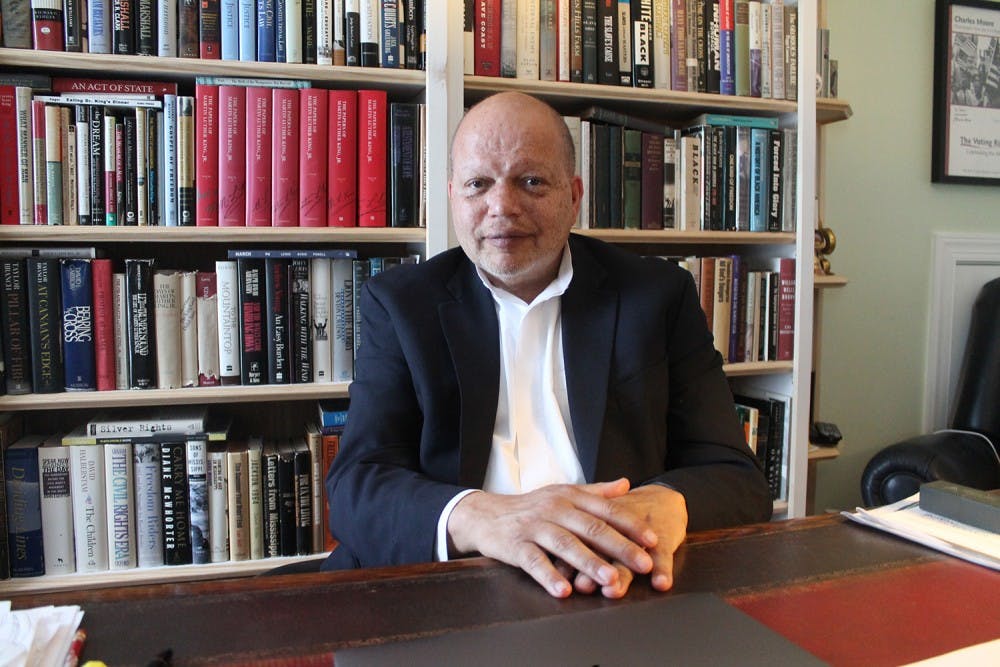Shaw said it is important to understand Chambers to understand the origins of the Center.
Chambers interned for Thurgood Marshall at the NAACP Legal Defense and Educational Fund and later became the NAACP LDF’s director in 1984. He also opened the first racially integrated law firm in North Carolina and litigated landmark cases — including Swann v. Charlotte-Mecklenburg Board of Education, which helped desegregate public schools in the 1970s.
“He helped to change North Carolina, and he helped to change the South, and he helped to change the country,” Shaw said.
Response to the BOG
Shaw said if the Board of Governors were to prohibit the Center from providing representation to victims of racial discrimination, it would be a step away from the University’s public service mission.
“It would be a betrayal of what the University committed to when they established the Center in honor of Julius Chambers and his legacy,” Shaw said.
“I think it would be a shameful betrayal.”
He said he believes some members of the Board of Governors disagree substantively with the work that the Center does.
“That is what is driving this, and they’ve come up with stated reasons why this doesn’t have academic integrity that I think don’t hold water,” Shaw said.
The board’s memo says the Center’s staff is government-funded and has significant incentive to litigate rather than resolve claims. According to a document released by the Center in a response to the board’s claims, grants, foundations and private donations pay for the Center’s staff salaries and benefits as well as program costs and expenses.
The board’s memo also says UNC should advise local governments that fail to comply with legal requirements rather than force them to spend thousands of dollars on litigation.
To get the day's news and headlines in your inbox each morning, sign up for our email newsletters.
The Center responded in its document by citing a particular case in which Brunswick County was represented by Parker Poe, a firm in which BOG member Steven Long is a partner, and arguing that the legal counsel for the county was paid for through government liability policies. Essentially, taxpayers in the communities pay for these policies and, subsequently, the salaries of the legal counsel.
“As a result, the people the Center represents are paying for the lawyers that are actively working against them,” the document from the Center said.
Community advocacy
Naeema Muhammad, a community organizer and organizing co-director of the North Carolina Environmental Justice Network — a group that the Center for Civil Rights has worked with on past legal cases — said the two organizations have worked together in cases dealing with issues like pollution from industrial hog operations.
Muhammad said the Center has always been quick to send someone to community meetings and advise communities from a legal perspective.
“They go in, and they represent the communities, and they do it pro bono and that’s been like a real — I can’t even describe the depth of that relationship because, number one, most of the communities that we work with are communities that are already living in poverty, people on fixed income, low wage jobs — and the communities could never afford the representation that the civil rights law center provides them with,” she said.
Muhammad said the Center provides real representation for the communities rather than token representation.
“What I always love about the civil rights law center is that they go in, they represent the community with the utmost respect, they give them top-notch representation,” she said.
Third-year law student Quisha Mallette worked on a pro bono project with the Center for Civil Rights in the UNC School of Law her first semester of law school and was a summer intern in 2015. She said working at the Center provided her with opportunities to do legal research pertaining specifically to education and environmental law, as well as less typical legal research like looking at school records and documents relevant to the legal issue.
“I was able to learn how to merge the two and think about how to present a legal argument and also present actual data relevant to what’s going on that supports even further that legal argument, and it’s really important with these areas of law to have that really clear fact finding,” Mallette said.
university@dailytarheel.com




